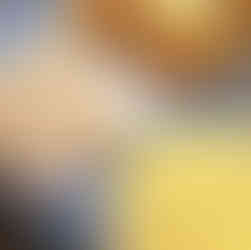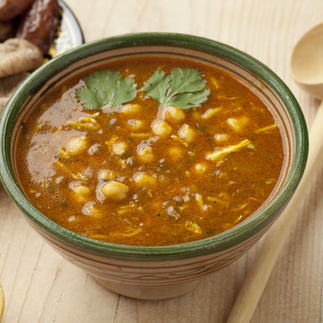Experiencing Ramadan in Morocco
- Kasbari Team
- Mar 6, 2024
- 8 min read
Updated: Mar 7, 2024
As a digital nomad traversing the globe while working remotely offers unique opportunities to immerse oneself in diverse cultures and traditions. One such experience is spending Ramadan in Morocco. This sacred month holds deep significance for Muslims worldwide, and observing it in Morocco provides a rich cultural encounter unlike any other. Here's a comprehensive guide for digital nomads on navigating Ramadan while residing in Morocco.

Understanding Ramadan
Ramadan is the ninth month of the Islamic lunar calendar, during which Muslims worldwide due fast from sunrise until sunset.
Fasting during Ramadan is one of the Five Pillars of Islam and entails abstaining from food, drink, smoking, and certain behaviors during daylight hours.
Morocco, with its vibrant Islamic culture, offers a unique setting to experience Ramadan.
However, Morocco follows the same general practices and traditions observed by Muslims around the world during Ramadan. Here are some key specifics of Ramadan in Morocco:
1. Dates and Time: The dates of Ramadan in Morocco are determined by the sighting of the moon and the lunar calendar. Each year, the Moroccan government announces the official start date of Ramadan based on religious authorities' recommendations and moon sighting reports. This announcement is typically made a one day before the start of Ramadan.
2. Fasting Hours: The fasting hours in Morocco vary depending on the time of year and the length of daylight hours. Morocco changes time during the month of Ramadan and moves back one hour.
3. Community Spirit: Ramadan in Morocco is a time of heightened community spirit and solidarity. Mosques host special events and gatherings, and individuals come together to perform acts of charity, including providing meals for those in need and distributing food packages to the less fortunate.
4. Eid al-Fitr: The end of Ramadan is marked by the celebration of Eid al-Fitr, a joyous festival that begins with special prayers at mosques followed by festivities, feasting, and exchanging of gifts with family and friends.
Observing Ramadan in Morocco
For travelers partaking in Ramadan in Morocco, we recommend you to respect local customs.
1. Respectful Dress: Dress modestly when visiting public spaces during Ramadan.
2. Avoid Eating in Public: Out of respect for those fasting, refrain from eating, drinking, or smoking in public spaces during daylight hours.
3. Learn Greetings: Familiarize yourself with common Ramadan greetings such as "Ramadan Mubarak" (Blessed Ramadan) or "Ramadan Kareem" (Generous Ramadan) to greet locals respectfully.

The purpose of Ramadan in Islam
Ramadan holds deep significance in Islam and serves multiple purposes within the faith.
1. Spiritual Reflection and Self-Discipline: Ramadan is a month of spiritual reflection, self-discipline, and increased devotion to worship. Through fasting, Muslims abstain from food, drink, smoking, and other physical needs from dawn until sunset, which helps cultivate self-control, patience, and empathy for those less fortunate.
2. Gratitude and Thankfulness: Fasting during Ramadan serves as a reminder of the blessings and provisions bestowed upon individuals by Allah (God). By voluntarily giving up food and drink, Muslims express gratitude for the sustenance they usually enjoy and recognize the importance of showing appreciation for the gifts they have been given.
3. Purification of the Soul: Ramadan is also seen as an opportunity for spiritual purification and renewal. Muslims strive to cleanse their hearts and minds of negative thoughts, habits, and behaviors, focusing instead on acts of kindness, charity, and compassion towards others. The emphasis on prayer, reading the Quran, and engaging in acts of worship helps strengthen their connection with Allah and purify their souls.
4. Community and Solidarity: Ramadan fosters a sense of community and solidarity among Muslims worldwide. Through shared experiences of fasting, praying, and breaking the fast together, individuals strengthen bonds with family, friends, and the broader Muslim community. Additionally, Ramadan encourages acts of charity and generosity towards those in need, further promoting unity and compassion.
5. Seeking Forgiveness and Redemption: Muslims believe that Ramadan is a month of forgiveness and redemption. By engaging in acts of worship, seeking forgiveness for past transgressions, and striving to improve themselves spiritually and morally, believers aim to earn Allah's mercy and blessings.
Overall, Ramadan holds profound significance in Islam as a time for spiritual growth, self-improvement, and drawing closer to Allah. It is a month of heightened devotion, reflection, and community engagement, emphasizing the values of compassion, gratitude, and humility.

Benefits of observing Ramadan
Fasting during Ramadan can offer several potential health benefits when practiced correctly and in moderation. Here are some of the notable benefits:
1. Detoxification: Fasting allows the body to rest from the continuous process of digestion and may promote detoxification by facilitating the elimination of toxins and metabolic waste products. This can have positive effects on overall health and vitality.
2. Cardiovascular Health: Some studies suggest that intermittent fasting, such as the fasting observed during Ramadan, may have cardiovascular benefits, including reduced blood pressure, improved heart rate variability, and lower levels of inflammation markers.
3. Brain Health: Fasting has been associated with cognitive benefits, including enhanced brain function, increased neuroplasticity, and improved mood. Some research suggests that fasting may protect against neurodegenerative diseases such as Alzheimer's and Parkinson's.
4. Improved Insulin Sensitivity: Fasting has been shown to improve insulin sensitivity, which can help regulate blood sugar levels. This may reduce the risk of developing type 2 diabetes and improve overall metabolic health.
5. Spiritual and Psychological Well-being: Fasting during Ramadan can have positive effects on mental health and well-being. It promotes self-discipline, mindfulness, and spiritual reflection, which can reduce stress, anxiety, and depression. Additionally, the sense of community and shared experience during Ramadan can foster a sense of belonging and support.
6. Cultural Immersion: Engage with Moroccan culture and Islam traditions on a deeper level by partaking in traditional Ramadan practices. Observing the fast alongside locals provides insight into Moroccan customs and traditions. Break the fast with locals during iftar (the evening meal) to experience Moroccan hospitality firsthand.
2. Personal Reflection: Ramadan encourages self-reflection and spiritual growth, providing an opportunity for personal development.
3. Culinary Exploration: Explore Moroccan cuisine through traditional iftar dishes, offering a culinary adventure.
Ramadan specialities
In Morocco, Ramadan is celebrated with a wide array of traditional dishes and sweets that hold special significance during this holy month. In the region of Tamraght and Taghazout, during Ramadan you can find these culinary specialties sold on the street at the end of the day.
By enjoying these traditional Moroccan dishes during Ramadan, you will have the opportunity to discover the richness of Moroccan cuisine and participate in the culinary traditions of this sacred month.
Here are details about some of the popular food specialties enjoyed during Ramadan:
1. Harira:
- Harira is a traditional Moroccan soup consumed to break the fast at sunset during iftar.
- It is typically made with tomatoes, lentils, chickpeas, meat (usually lamb or beef), celery, coriander, parsley, and spices such as turmeric, ginger, and pepper.
- Harira is often served with dates and chebakia, which are sweet pastries dipped in honey.
2. Briouates:
- Briouates are delicious small pastries shaped like triangles or cigars, filled with various fillings such as minced meat, chicken, seafood, vegetables, or cheese.
- They are usually fried until golden and crispy.
- Briouates are often served as appetizers during iftar or suhoor (pre-dawn meal).
3. Msemen and Beghrir:
- Msemen is a Moroccan flatbread, similar to a pancake, usually served for breakfast during Ramadan. It is made from a dough of flour, water, salt, and yeast, then folded and cooked on a griddle until golden and crispy on the outside while remaining soft on the inside.
- Beghrir, also known as "thousand-hole pancakes," is another popular Moroccan specialty for breakfast during Ramadan. These pancakes are light and fluffy, with a spongy texture due to the yeast used in the batter. They are typically drizzled with melted butter and honey.
4. Chebakia:
- Chebakia is a traditional Moroccan pastry that is synonymous with Ramadan. It is often prepared in large quantities and shared among family and friends during iftar (the evening meal to break the fast).
- The dough for chebakia is made from a mixture of flour, semolina, yeast, butter or oil, and water, flavored with orange blossom water and spices such as sesame seeds, anise seeds, and cinnamon.
- The dough is shaped into intricate flower-like patterns or twisted strips, then deep-fried until golden brown and crispy.
- After frying, chebakia is dipped in a honey syrup infused with rose water or orange blossom water, giving it a sweet and fragrant flavor.
- Chebakia is often garnished with sesame seeds or ground almonds before serving.
5. Sellou:
- Sellou, also known as sfouf, is a nutritious and energy-rich Moroccan sweet that is traditionally consumed during Ramadan and other special occasions.
- It is made from a blend of toasted flour, ground almonds, sesame seeds, fried almonds, roasted unhulled sesame seeds, and spices such as cinnamon and anise.
- The mixture is then combined with melted butter or oil and honey to form a dense, crumbly dough-like consistency.
- Sellou is often flavored with orange blossom water or rose water for added aroma and sweetness.
- It is typically served in small portions and enjoyed with a cup of Moroccan mint tea during iftar or suhoor.
And of course, dates hold special significance during Ramadan, especially for breaking the fast, due to the following reasons:
1. Nutritional Benefits: Dates are rich in natural sugars, providing an immediate source of energy to replenish the body after a day of fasting. They also contain essential nutrients such as potassium, magnesium, and fiber, which help restore hydration and aid digestion.
2. Cultural Tradition: Dates have been traditionally consumed to break the fast since the time of Prophet Muhammad. This practice has been passed down through generations and is deeply ingrained in Islamic culture as a symbolic and spiritual act.
Ramadan in Morocco is not just about fasting; it's a celebration of faith, unity, and shared humanity.
It's important to note that individual experiences with fasting may vary, and not everyone may experience the same benefits. Additionally, fasting during Ramadan should be approached with caution, particularly for individuals with certain medical conditions or dietary restrictions. Consulting with a healthcare professional before fasting is advisable, especially for those with pre-existing health concerns. Overall, practicing fasting during Ramadan can offer various health benefits when done mindfully and in accordance with one's health needs and capabilities.
According to Islamic teachings, there are certain circumstances under which individuals are exempted or not obligated to fast during Ramadan. These exemptions are based on compassion and understanding towards individuals facing particular challenges or health conditions.
1. Children: Prepubescent children are not required to fast during Ramadan. However, some parents may encourage children to practice fasting for a few hours or half-days to gradually introduce them to the practice.
2. Elderly Individuals: Elderly individuals who are physically frail or have health conditions that make fasting difficult or harmful are exempt from fasting.
3. Pregnant and Nursing Women: Pregnant or breastfeeding women are exempt from fasting if they fear that fasting may harm themselves or their infants.
4. Travelers: Islam exempts travelers from fasting during Ramadan if the journey is considered significant and challenging. Travelers have the option to either fast or postpone their fasts until they have completed their journey and are settled.
5. Menstruating Women: Women who are menstruating are not required to fast during their menstrual cycle. They are encouraged to make up for the missed fasts after their menstruation ends.
6. Individuals with Illness or Health Conditions: Those who are ill or have health conditions that would be exacerbated by fasting, such as diabetes or chronic illnesses, are exempt from fasting.
It's important to note that while individuals in these circumstances are exempt from fasting during Ramadan, they are still encouraged to partake in other acts of worship, such as prayer, charity, and spiritual reflection, to fully engage with the spirit of Ramadan. Additionally, those who are exempt from fasting are often encouraged to provide food or financial assistance to those in need as a form of charity (zakat) during Ramadan.





















Comments